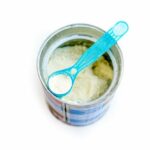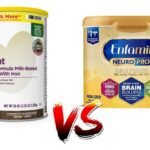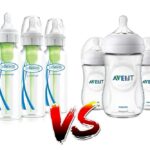As a breastfeeding mother, I’m constantly on the lookout for which foods and medicines I can safely consume. Here is a comprehensive list of some common food and medicines and whether or not they are safe while breastfeeding. It’s always a good practice to do your research and make sure you’re not consuming anything that will transfer to your baby through breastfeeding.
Benadryl / Allergy Medicine
The main ingredient in Benadryl and most allergy medicines is diphenhydramine. If taken in small doses, this is safe to take while breastfeeding, according to a review of research on this particular drug by the Drugs and Lactation Database. However, they also note that if taken in larger doses or for an extended time, it can affect the infant and lead to a reduction in milk supply. Because of this, they recommend taking this drug at bedtime after the last feeding, as this will minimize possible negative effects.
View in gallery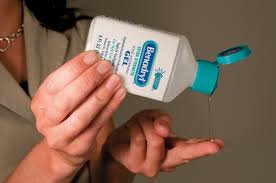
Claritin
Claritin is another allergy medication and it is generally safe while breastfeeding. However, it should also be taken in small doses as it can have impacts on the infant if taken in large doses or over an extended period.
Protein Powder/Protein Supplements
Protein powder and protein supplements are generally safe for breastfeeding mothers. However, in case the infant has an allergy to the product we recommend consulting with your pediatrician before use.
Dayquil
Dayquil’s ingredients include acetaminophen, dextromethorphan, guaifenesin, and phenylephrine. These ingredients are not recommended for breastfeeding mothers, according to Everyday Health, as they can pass into breastmilk and can cause a reduction in breastmilk. So its best to seek your doctor’s advice before using Dayquil.
Stool Softener
Stool softeners are safe to use while breastfeeding, according to Robert Milstein M.D. as they are not absorbed into the intestines and thus are not found in breast milk.
Plexus
Plexus is a weight loss drink powder that can curb the desire to over-eat. It is generally considered safe while breastfeeding, although you should still consult your doctor before taking it.
Phenylephrine
Many drugs contain phenylephrine. The research on this drug is scarce, but according to Drugs.com, it is not likely to reach a breastfeeding infant. However, since it is not known how it affects the production of breastmilk, they recommend possibly using another drug instead.
Flonase
This is an allergy medication that is inhaled. According to Drugs.com, it is safe while breastfeeding, as the levels inhaled are likely not large enough to affect a breastfed infant.
Protein Shakes
Protein shakes are considered safe while breastfeeding.
Detoxes
As long as detoxes involve healthy or clean eating, then they are safe while breastfeeding. If they include extreme dieting than they are not recommended while breastfeeding, as this can limit breastmilk production.
Aleve
Naproxen is the main ingredient in Aleve. According to Drugs.com, it is generally safe while breastfeeding. However, it is recommended to consult with a doctor before use.
Shakeology
Shakeology is a supplementary drink that is often used as a meal replacement. It is generally discouraged in breastfeeding mothers because its effects on breastfed infants are still largely unknown.
Sleep Aids
When sleep aids include common ingredients used to treat colds (diphenhydramines, antihistamines), they are generally considered safe when used in small doses and for shorter periods. However, when taken in larger doses or for longer periods they can negatively affect breastfed infants.
Diet Pill
It is generally not recommended to use diet pills while breastfeeding, as the effects are largely unknown.
Pepto Bismol
Because of the unknown nature of some ingredients found in Pepto Bismol, the AAP recommends that doctors use caution when advising breastfeeding mothers as to its use.
View in gallery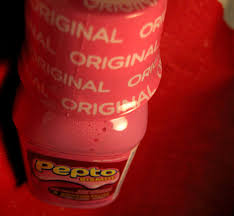
Weight Loss Supplements
Weight loss supplements are generally not recommended for use while breastfeeding.
Emergen C
Emergen C is safe to take while breastfeeding as long as it is only taken once per day. Its label advises against taking more than this amount as it is not known if frequent use is safe.
Turmeric
Turmeric is considered safe for breastfeeding mothers by the FDA, however, there is little research on how it affects breastmilk supply.
Thrive
Thrive is a weight loss supplement, and it is generally discouraged in breastfeeding mothers because its effects are largely unknown. It also contains a large amount of caffeine which can have adverse side effects.
Xanax
The main ingredient in Xanax is alprazolam. The Drugs and Lactation Database recommends not using alprazolam repeatedly while nursing, as it can have significant negative effects on the breastfed infant. However, it states that it is safe to continue breastfeeding if taken in a single dose.
Augmentin
Augmentin is used to fight bacteria in the body and is the combination of amoxicillin and clavulanate potassium, according to Drugs.com. They state that the amount that augmentin passes into breast milk is quite small, but that it is still best to consult with a doctor before using this drug.
Zofran
The main ingredient in Zofran is ondansetron. According to the Drugs and Lactation Database, there has been little research on the clinical use of ondansetron while breastfeeding. Because of this, it is recommended that a different drug be used, especially with very young infants.
Zicam
The active ingredient in Zicam is zinc. Zinc is safe while breastfeeding as long as it is used as a nasal drop.
View in gallery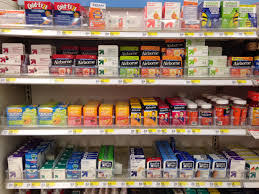
Garcinia Cambogia
Garcinia cambogia is a tropical fruit that is often used for weight loss. One of its main ingredients is hydroxy citric acid. Since there has been little published research on its safety for breastfed infants, it should be avoided.
Echinacea
Echinacea is an herb that is sometimes used to treat cold symptoms. There is little published data on its safety during breastfeeding, so it is generally not recommended for nursing mothers.
Plan B
Plan B is an emergency contraceptive. Since it is progestin-only, it does not affect the milk supply. It is generally thought to be safe while breastfeeding, however, it may not be necessary as exclusively breastfeeding is already an effective birth-control technique.
View in gallery
Azo
Azo-Truxazole is often associated with the treatment of urinary tract infections. It contains phenazopyridine and sulfisoxazole. The causes of using phenazopyridine while breastfeeding is not clear, however, it can cause certain types of anemia and should thus be avoided in nursing mothers. Sulfisoxazole should be safe to use while breastfeeding after an infant is no longer a newborn. However, since Azo contains both these ingredients, it should be avoided while breastfeeding.
Miralax
Miralax is a type of laxative. It is generally considered safe to use while breastfeeding, as it does not pass into breastmilk when taken in normal doses.
Excedrin
Excedrin is a migraine medicine that contains acetaminophen, caffeine, and aspirin. Acetominophen is known to be safe for breastfeeding mothers as very little passes to the infant through breastmilk. Aspirin has been shown to cause some adverse side-effects in breastfed infants when taken in long-term, large doses. Caffeine ingested by a breastfeeding mother enters breastmilk quickly, and when taken in large dosages can have adverse side effects on an infant. So Excedrin likely is not safe to take while breastfeeding.
Theraflu
Theraflu is used for colds. It contains acetaminophen, diphenhydramine, and phenylephrine. Acetaminophen is safe for breastfeeding mothers. Diphenhydramine is safe for breastfeeding mothers in small doses. And very small amounts of phenylephrine enter breastmilk, so it is not likely to reach a breastfed infant. Thus, as long as the use of Theraflu is infrequent and in small doses, it is probably safe to take while breastfeeding. However, you should consult your doctor before taking this medication if you are nursing.
Hydrocodone
Hydrocodone is a commonly used narcotic. According to one study, “Moderate dosages of hydrocodone appear acceptable during breastfeeding, but more data are needed to determine the maximum safe dosage for nursing mothers. Neonates and preterm infants may be more susceptible than older infants to adverse effects of hydrocodone and its metabolites in breast milk.” Thus it is likely wise to use caution when taking this drug while breastfeeding, and you should consult your doctor before use.
Airborne
Airborne is a commonly used herbal cold medicine. According to the Breastfeeding Center of Pittsburgh, ” Insufficient data is available for Airborne, a cold remedy, and therefore should be avoided for breastfeeding mothers.” Thus it is probably best to avoid this medicine while breastfeeding.
Clindamycin
Clindamycin is a drug used to treat skin or vaginal infections. If it is used orally intravenously, it may cause negative effects to the breastfed infant. But if it is used topically or on the vaginal area, it is not likely to affect the infant. Thus it is probably safest to consult with your physician before using this drug.
Diflucan
Diflucan is often used to treat fungal infections. It is considered safe in breastfeeding mothers because the amount that reaches the infant is less than what is used to treat newborns.
Xanax
The active ingredient in Xanax is Alprazolam. There have been reports of negative side effects in nursing infants, so it should generally be avoided in breastfeeding mothers.
Adderall
Adderall is often used to treat ADHD. Its active ingredients are amphetamines. Amphetamines may not adversely affect infants, according to some evidence. However, there is no evidence of how infants’ neurological development is effected. And, if mothers are abusing Adderall, breastfeeding is not encouraged. Thus, it is largely unclear if Adderall is safe while breastfeeding, so you should consult your physician before using this drug.
View in gallery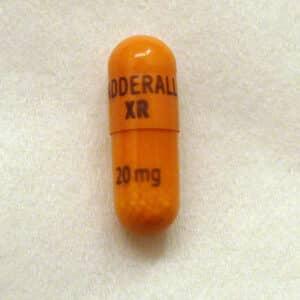
Peanut Butter
There has been a lot of controversy over whether or not pregnant or breastfeeding mothers should consume peanut butter due to allergy risk. When breastfeeding mothers consume peanut products, they do pass into their breastmilk. However, there has been no evidence showing that this leads to peanut allergies in infants. On the contrary, one study found that the risk of an infant developing a peanut allergy was lessened when the breastfeeding mother regularly consumed peanut products.
Valtrex
Valtrex is used to treat Herpes. Its active ingredient is acyclovir. According to the AAP, this is safe for breastfeeding mothers, as it does not pass into breastmilk.
Norco
Norco is an Opioid pain medication. Because it can pass into breastmilk and harm the infant, it is not recommended while breastfeeding.
Oxycodone
Oxycodone is a type of narcotic. According to LactMed, it “can cause infant drowsiness, central nervous system depression, and even death” if used while breastfeeding. Because of this, many experts recommend little to no use of this drug while breastfeeding.
Retinol
Retinol is another term for Vitamin A. This is generally safe for breastfeeding mothers, as long as it is taken in normal dosages. If daily dosages exceed 3,000 mcg then there may be adverse side effects to the infant.
Botox
The active ingredient in Botox is Botulin A. There is no data on the use of Botulin A while breastfeeding. However, according to LactMed, “Since the doses used medically are far lower than those that cause botulism, amounts ingested by the infant, if any, are expected to be small and not cause any adverse effects in breastfed infants.” Thus normal doses of botox are likely safe while breastfeeding. However, it is probably best to consult your physician before using this drug while nursing.
Melatonin
Melatonin is a hormone that helps regulate sleep and circadian rhythm. It is naturally produced in breastmilk and is produced in especially high amounts at nighttime. It is generally thought to be safe when used as a supplement, however since supplements are not regulated by the FDA, it is probably best to consult your physician before use.
Wellbutrin
Wellbutrin is often used to treat depression as well as to help with quitting smoking. Its active ingredient is bupropion. According to LactMed, “Limited information indicates that maternal bupropion doses of up to 300 mg daily produce low levels in breastmilk and would not be expected to cause any adverse effects in breastfed infants.” However, it is still best to consult with your physician before using this drug.
Chamomile Tea
Chamomile tea is generally considered to be safe for breastfeeding mothers, although there is no data on this for nursing mothers.
View in gallery
Azithromycin
Azithromycin is an antibiotic that is commonly used to treat pink eye. Some of the brands it can be found in include Zithromax, Zmax, and AzaSite. This drug does not transfer into the breastmilk in very high doses. It is also given directly to infants. Because of this, it is likely safe to use azithromycin while breastfeeding.
Aspirin
Aspirin is a drug used to treat inflammation and is often used to treat fevers or headaches. It is also a blood thinner and can help with blood or heart diseases. When taken while breastfeeding, it is excreted into breastmilk and is especially so for higher doses. Thus, it is probably best to avoid this drug while breastfeeding, especially in larger doses or for longer periods.
Cipro
Cipro is the brand name for the drug ciprofloxacin. This drug is an antibiotic and is often used to treat infections. It is generally deemed safe while breastfeeding, with only a slight risk of negative effect to the breastfed infant. Because of this, it is also often recommended to wait 3 to 4 hours after taking this drug to breastfeed.
Dulcolax
Dulcolax is the brand name for the drug bisacodyl. This drug is a laxative that is used to treat constipation. This drug is known to be safe while breastfeeding, as it has not been found to transfer into breastmilk. Thus there is no need for any extra precautions to be taken when taking Dulcolax and breastfeeding.
Midol
Midol is a drug that is used during women’s periods for cramps, bloating and fatigue. Some of its ingredients are acetaminophen, caffeine, and pyrilamine maleate. Acetaminophen is safe while breastfeeding, caffeine is safe while breastfeeding in small doses, and pyrilamine maleate is safe while breastfeeding in small doses. Thus, it is likely to take Midol while breastfeeding as long as it is in small doses and not over an extended period.
Antidepressants
Antidepressants are drugs commonly used to treat depression, anxiety, or other mental health conditions. Some common antidepressants are selective serotonin reuptake inhibitors (SSRIs) and serotonin and noradrenaline reuptake inhibitors (SNRIs). The active ingredients in SSRI’s are paroxetine and sertraline. These are generally determined safe while breastfeeding. The active ingredient in SNRI’s is venlafaxine. One review of the literature regarding the safety of venlafaxine while breastfeeding concluded that it “is relatively safe during pregnancy, in particular as far as major malformations are concerned, whereas considering the small number of studies published, no definitive conclusions can be drawn on its safety during breastfeeding.” Thus it is probably best to consult your doctor on this drug before taking it while nursing.
Mucinex DM
The active ingredients in Mucinex DM are dextromethorphan and guaifenesin. It is often used to treat coughs or colds, as it can thin mucus. The effect of dextromethorphan on breastfed infants has not been studied, however, according to Drugs.com, it is not likely to have any negative effects on a breastfed infant, if taken in normal doses. Similarly, the effects of guaifenesin on breastfed infants have not been studied, but it is likely to be safe when taken in normal doses. Thus, Mucinex DM is likely safe to take while breastfeeding, as long as it is not taken in large doses. However, it is best to consult your physician before taking this drug while breastfeeding.
Gas X
Gas X is a drug that is used for relieving the discomfort of gas. Its active ingredient is simethicone. Since it is absorbed orally, it does not transfer into breast milk. Thus, Gas X is safe to take while breastfeeding, and there are no extra precautions that need to be taken while using this drug and nursing.
Colace
Colace is a laxative that is commonly used to treat constipation. Its active ingredient is docusate sodium. When taken while breastfeeding, it is not likely to be found in breastmilk. Therefore it is likely safe to take while breastfeeding. However, it is still best to seek your physician’s advice while taking Colace while nursing.
Claritin D
Claritin D includes the ingredients loratadine and pseudoephedrine, which are antihistamines that are commonly used to treat allergy symptoms. Loratidine does not transfer into the breastmilk in high amounts, so it likely does not have any negative effects on breastfed infants. Similarly, pseudoephedrine does not transfer into breast milk in high amounts. However, it can cause a reduction in milk supply. Therefore, Claritin D is likely safe to take while breastfeeding, but you should consult with your doctor before doing so.
View in gallery
Milk Thistle
Milk thistle is another name for the plant Silybum marianum, which is often used as a natural way to increase milk supply for nursing mothers. There has been no evidence indicating that milk thistle increases milk supply. However, it is likely safe to take while breastfeeding, as it is not easily absorbed orally, and thus would likely not affect the breastfed infant.
Green Tea
Green tea is often considered a very health-promotive drink as it includes catechins, which are antioxidants that aid in preventing and fighting cell damage. However, it also includes caffeine, and it is generally recommended that breastfeeding mothers consume less than mg of caffeine each day. So, green tea is likely safe to drink while breastfeeding as it is not in excessive amounts.
Unisom
Unisom is an antihistamine that is used to treat allergies. Its active ingredients are diphenhydramine and doxylamine. Diphenhydramine is not expected to cause any negative effects on breastfed infants. Similarly, doxylamine is also not expected to cause any ill effects in breastfed infants, as long as it is taken in small doses. Thus, Unisom is likely safe to take while nursing when taken in small doses.
Cleanses
Cleanses are a way to detox and often include only eating healthy foods or avoiding certain unhealthy foods. When done in a healthy way in which foods are not limited excessively, cleanses should be safe while breastfeeding. However, if food is limited so much that breastmilk supply is reduced, then they are generally not recommended for breastfeeding mothers.
Advocare
Advocare is a type of dietary supplement. Since supplements are not regulated by the FDA, and since it is unknown what the effects will be on breastfed infants, it is generally advised to avoid dietary supplements while breastfeeding. Thus it is best to consult your physician before taking Advocare and nursing.
Throat Coat Tea
Throat coat tea is often used to help reduce sore throat pain. However, on its label, it states, “Not to be used during pregnancy or while breastfeeding.” Thus it is probably best to avoid throat coat tea while breastfeeding unless you consult your doctor first and you are given the green light to go ahead.
Fat Burners
Fat burners are diet pills that are made to decrease your appetite and slow down your metabolism. However, according to Dr. Laura Fijolek of Baby Center, they should be avoided while breastfeeding. She says, “A diet pill seems like the answer but in reality, these drugs can be very dangerous to you and possibly to your baby as well if you’re breastfeeding.” Thus it is probably best to avoid fat burners while nursing your baby.
Tylenol PM
Tylenol PM is often used for cold or flu symptoms, especially to help you sleep at night. Its active ingredients include the antihistamines diphenhydramine and acetaminophen. Diphenhydramine is generally considered safe for breastfeeding mothers in low doses, especially when taken at night after the last feeding of the day. Acetaminophen is also widely considered to be safe for breastfed infants, as the amount that passes into breast milk is much less than what is directly given to infants. Thus, Tylenol PM is likely safe for breastfeeding mothers.
Teeth Whitener
The active ingredient in teeth whiteners is peroxide. Because the amount of peroxide in teeth whiteners is so low, it is not likely that it would be found in high levels in breastmilk. Additionally, the body naturally produces peroxide. For these reasons, getting your teeth whitened while breastfeeding is likely safe.
Tums
Tums is an antacid that is commonly used to treat heartburn. The main ingredients in tums are sucrose and calcium carbonate. Since these ingredients are already found in infant foods, and because they are not easily absorbed orally, it is likely safe for breastfeeding mothers to take Tums.
View in gallery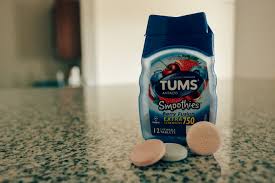
Vicks
The active ingredients in Vicks are camphor, eucalyptus oil, and menthol. It is often used to treat stuffy noses, a build-up of mucus in the chest or throat, sore throats, or coughs. According to Rita Ghelani, a pharmacist from Net Doctor, “If you’re breastfeeding you should not apply Vicks vapor rub to your chest. This is because the baby could breathe the vapor while feeding and this could affect their breathing.” Therefore you should consult with your doctor before using Vicks while breastfeeding.
Herbalife
Herbalife is a company that sells shakes that supplement weight loss and performance. One of its products is targeted specifically at breastfeeding mothers. It is called the “New Mom Shake Booster.” According to Dr. John Agwunobi, co-president of Herbalife, “This booster was formulated by nutrition scientists, and manufactured with the highest standards in mind to help new moms optimize their nutrition.” Since this product is targeted specifically at breastfeeding mothers, it is likely to be safe. However, it is still important to seek the advice of your physician before using this product while breastfeeding.
Preparation H
Preparation H is commonly used to treat hemorrhoids, sinus problems, and stuffy noses. Its active ingredients are mineral oil and phenylephrine. Mineral oil is found in breastmilk and is not easily absorbed orally. Thus it is likely safe while breastfeeding. Phenylephrine does not pass into breast milk at a high rate so it is also safe while breastfeeding. Thus, it is likely safe to use Preparation H while breastfeeding.
Dramamine
Dramamine is commonly used to treat motion sickness. Its active ingredient is dimenhydrinate. This is okay for breastfeeding mothers in small doses, but should not be taken for an extended period or in large doses. Thus this drug is likely safe while breastfeeding, but it is still important to consult with your doctor before taking Dramamine while breastfeeding.
Spirulina
Spirulina is a blue-green alga that has many nutrients and is purported to help with a plethora of health problems. It does not increase milk supply however, and its effects on breastfed infants have not been studied. Since this is a dietary supplement and is not regulated by the FDA, it is generally not recommended while breastfeeding.
Stevia
Stevia is a type of leaf that is often used as an alternate sweetener to sugar. Its key ingredients include rebaudioside and stevioside. It is not commonly used for any lactation purposes. The FDA states that it is “generally recognized as safe,” however there is limited data on how it might affect breastfed infants. Thus, stevia is probably safe to use while breastfeeding.
View in gallery
Albuterol
Albuterol is a bronchodilator and is commonly used to treat bronchospasm. There is no published data available on the effects of albuterol on breastfed infants, however, according to Drugs.com, “data from the related drug, terbutaline, indicate that very little is expected to be excreted into breastmilk.” Thus it is likely safe to take Albuterol while breastfeeding, but it is still best to check with your physician before doing so.
Phentermine
Phentermine is an anorectic and can be used to promote weight loss. Since it is unknown if phentermine transfers into breastmilk, it is generally recommended that it should not be taken while breastfeeding.
Vicodin
Vicodin is a narcotic that is used to treat pain. Its active ingredient is hydrocodone. Hydrocodone can have negative effects on breastfed infants, including drowsiness, central nervous system depression, and death. These effects are particularly pronounced in newborns. Because of this, Drugs.com recommends that oral intake of hydrocodone be limited “to a few days at a maximum dosage of 30 mg daily with close infant monitoring.” Because of this, it is best to consult your doctor before using Vicodin while nursing.
Prozac
Prozac is the brand name for the drug Fluoxetine. It is a selective serotonin reuptake inhibitor that is commonly used to treat depression and other mental health disorders. This drug can be found in breastmilk at higher rates than can be found with other SSRI’s. Because of this, it is commonly recommended that if not necessary, another drug be used in place of Prozac while breastfeeding.
Isagenix
Isagenix is a company that provides meal replacements for weight loss and dietary supplements. While breastfeeding, mothers should be getting an extra 300 calories a day, and not focusing on losing weight. Thus, the Isagenix meal replacements should not be used in place of meals, but can be used in addition to regular daily food intake. Some of the products that are safe to consume while breastfeeding include: IsaLean Shakes, IsaPro, IsaLean Shake Plant-Based, IsaLean Bar, IsaLean Bar Plant-Based, Fiber Snacks, Whey Thins, Harvest Thins, Slim Cakes, Isagenix Snacks, and Greens. Some of the dietary supplements that you should not take while breastfeeding unless consulting with your doctor first include AMPED Hydrate, FiberPro, Immune Shake Booster, Isagenix Fruits, C-Lyte, IsaOmega, IsaBiome Daily Digestive Health System, and Collagen Bone Broth. Some of their products are not recommended for breastfeeding mothers. These include: Cleanse for Life, Ionix Supreme, IsaDelight, Natural Accelerator, IsaFlush, Brain and Sleep Support System, CytoActives, IsaGenesis, e+, Isagenix Coffee, Heart Shake Booster, AMPED Nitro, AMPED Power, AMPED NOx, AMPED Recover, BĒA Sparkling Energy Drink, and Snack Bites.
Tea Tree Oil
Tea tree oil has not been studied about breastfeeding mothers, so there is no data on its safety for breastfed infants. However, certain ingredients can be harmful if ingested by infants so it should not be used topically around the breast. Thus it is best to consult with a physician before using tea tree oil while breastfeeding.
Chia Seeds
Chia seeds are safe to consume while breastfeeding. They also contain many nutrients that are beneficial to both the mother’s health and the baby’s health. They also can increase milk supply. Thus chia seeds are a good choice for breastfeeding mothers.
View in gallery
Chloraseptic
Chloraseptic throat lozenges include benzocaine and menthol. Benzocaine is likely safe while breastfeeding, however, there is limited data on this. There is also no data available on the safety of taking menthol while breastfeeding. Thus it is best to consult your doctor before taking Chloraseptic throat lozenges while breastfeeding.
Cepacol
Cepacol is a drug used for sore throat and cough relief. It contains benzocaine and dextromethorphan. Benzocaine is likely safe while breastfeeding, but there is limited data available on it. Dextromethorphan is safe when taken in normal doses. Thus Cepacol is likely safe while breastfeeding, however, it is best to consult with your doctor before use.
Salicylic Acid
Salicylic acid is considered safe while breastfeeding, however, it is recommended that it is not used in areas that can come into contact with an infant’s skin or where it can be ingested by the infant.
Nasacort
The active ingredient of Nasacort is triamcinolone. As long as it is used as a nasal spray and not consumed orally it is considered safe while breastfeeding.
310 Shake
310 shake is a weight-loss shake. Since it is a supplement it is not regulated by the FDA, and as a result, it should be used with caution by breastfeeding mothers. Consult with your physician before using 310 Shake while breastfeeding.
Nexium
Nexium is a brand name for the drug Omeprazole. Omeprazole is found in breastmilk at low levels, but in certain clinical trials, no harmful effects were found in breastfed infants whose mothers took this drug at normal levels. Thus it is likely safe to take Nexium while breastfeeding at normal doses, but it is best to consult with your doctor before taking this drug while nursing.
5 HTTP
5 Hydroxytryptophan is an herbal weight loss product. It is often used to treat sleep problems, depression, and fibromyalgia. In the past, 5 HTP supplements have been contaminated and caused serious side effects. Thus, breastfeeding mothers should not take this supplement.
Flu Shot
It is safe for breastfeeding mothers to get the flu vaccine. It is even helpful because the antibodies can be passed to the infant and support their immune system.
View in gallery
Jolivette
Jolivette is a type of oral contraceptive. Generally, Jolivette is safe for breastfeeding mothers, and only a few cases have shown a reduction in milk supply. Thus it is probably safe to use Jolivette while breastfeeding, but you should consult with your physician before use.
Phenol
Phenol is a local anesthetic that is often used on feet. Since it is used topically, it is likely safe while breastfeeding. It should not be used in the breast area where an infant might ingest it. It is best to consult your doctor before using Phenol while nursing.
Redbull / Energy Drinks
Since Redbull and energy drinks are rather high in caffeine, they should typically be avoided while breastfeeding, as infants can be negatively affected by high amounts of caffeine.
Do’s & Don’ts of Medicine While Breastfeeding
Generally over the counter medicine is fine while breastfeeding, but you’ll want to make sure and do your research to be sure nothing is transferred via breastmilk. Watch the following video to get some common questions answered.
Conclusion
Many medications are safe to take while breastfeeding, but it is important to always consult with your physician before taking a new medication while nursing. I hope this list proved helpful to you!





